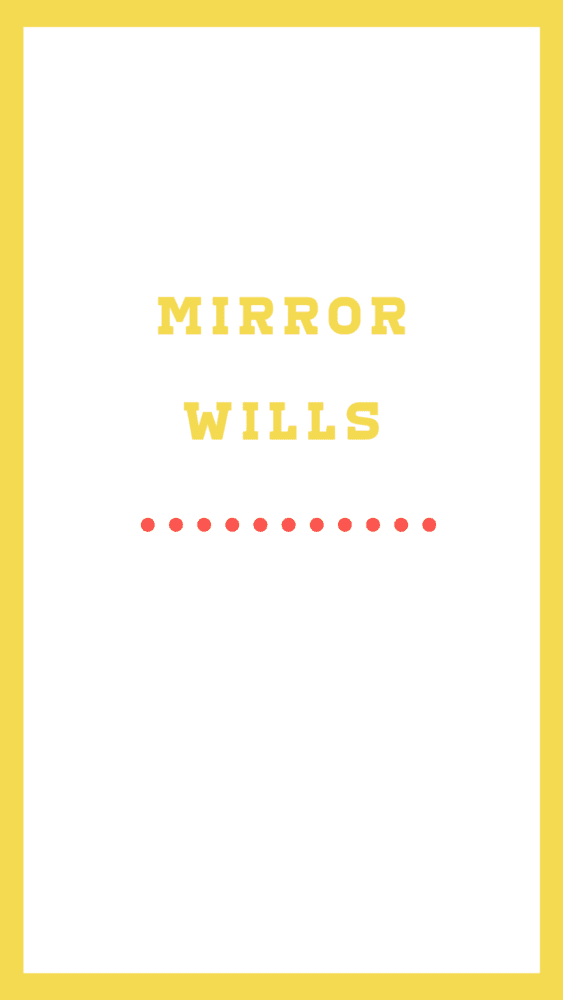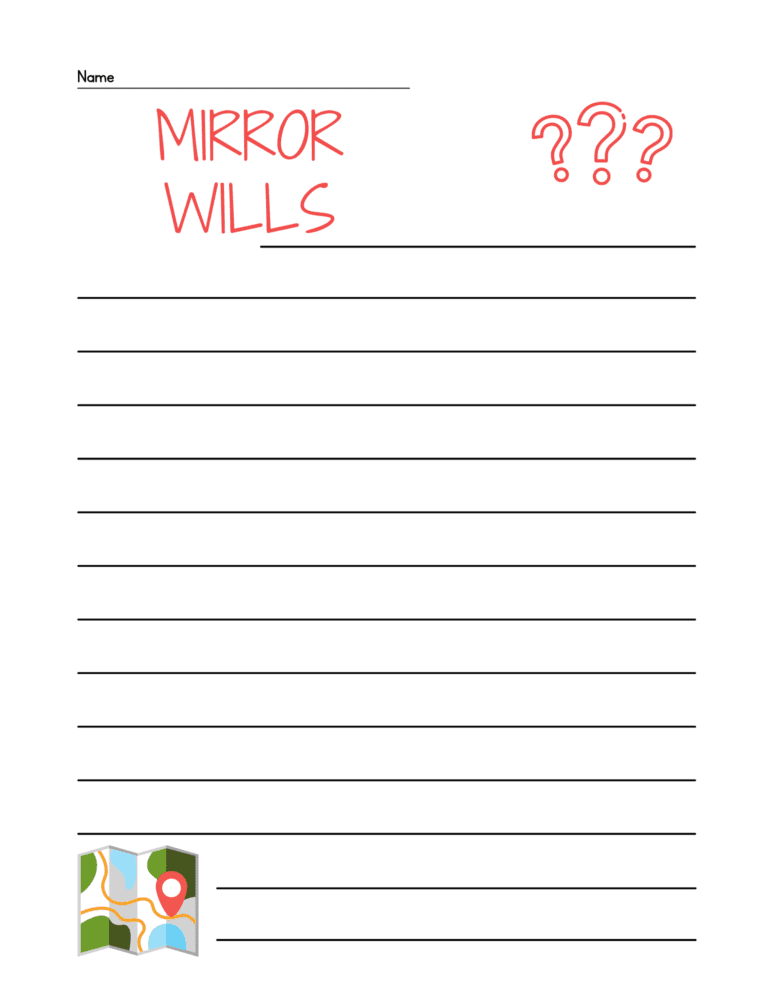Mirror wills: Only England and Wales are covered by this information. The law will determine who gets what from your estate if you die in the choice (without a legal will). This isn’t ideal because it implies that family members may be under-provided. Whether married or not, a pair wants to prepare nearly identical choices; they can use mirror wills to represent their preferences. Except for the testator’s name (the person who makes the will) and their specific funeral desires, these are nearly identical in almost every detail.
Mirror wills
Mirror wills are nearly similar wills in which one spouse leaves their estate to the other in the case of their death. When one spouse leaves everything to their partner and their children, this is known as a mirror will. The other spouse’s will is identical in that it bequeaths everything to the other spouse first, followed by the children. As a result, when one of them dies, the other is protected, and when the second fails, the assets pass to the children.

Mirror wills
When should you write your mirror will?
If you have children, mirror wills should be written as soon as possible. If you are engaged, married, or in a civil partnership and both of you want your assets to go to the same place after you die, you should consider writing mirror wills. If none of you desires the same thing, you can each write your own choice.
Why would you construct a mirror?
Your companion inherits everything.
Mirror wills are comparable contracts written for couples who agree to leave their tangible assets to the last surviving partner in the event one of them dies. You preserve your partner’s financial future by agreeing to a mirror will (as if you were unmarried).
You are capable of providing for your children.
Should the couple die simultaneously, a mirror will include instructions for both parties’ estates to be handed to any surviving children. If you have children under 18, you can name a guardian for them if both parents die.
Additional executors can be named.
In most cases, the partners are the sole beneficiaries and executors of each other’s mirror wills (i.e., a person named by the maker of choice to carry out the directions of the will). Additional executors should be documented in mirror wills so that both couples’ wishes can be carried out at the same time if they die.
What exactly are the issues with mirror wills?
At any point, either side can change their mind. Even if a couple’s wishes are identical, their wills are their own. As a result, trusting your spouse is crucial because you don’t have to tell your partner if you change your mind (and they do not have to say to you either). This is especially important if your partner remarries or has children with someone else after your death (i.e., they could decide to change their will and subsequently pass on your assets to people you do not want).
What is the purpose of a mirror?
Mirror wills are two almost identical wills in which one individual leaves all or most of their estate to the other.
Mirror wills are a popular choice among couples. A typical example is a husband who leaves his whole inheritance to his wife, with the caveat that if she dies first, his assets will pass to their children. His wife then mirrors his will, giving him her real estate or their children if he dies first. This safeguards both spouses and, in principle, ensures that their children get both fortunes in the end.
However, you don’t have to be married to make mirror wills. Any two people — brothers, roommates, or business partners – can form a relationship.
Advantages of Mirror
Unmarried partners might offer each other protection. Unless you’re married or in a civil partnership, your estate will not go to your spouse if you die without making a will (‘intestate’). By creating mirror wills, you can provide each other with the same (or even better) amount of financial support that a spouse or civil partner receives immediately after your death.
You have the option of appointing guardians for your children. You and your partner can also name legal guardians in a mirror will. These folks will care for your children if you both pass away while they are still minors. More information on legal guardians can be found here.
The downside of using a mirror is completely trusting your spouse. You and your partner have the option of writing a new will at any moment. This means that if they remarry after you die, the assets from your estate may go to their new partner instead of your children. They can also sign a new will while you’re both still alive, and they’re under no duty to tell you.
Care home costs can quickly drain your estate. If your partner requires care later in life, the local authority has the jurisdiction to deduct the cost of that care from your partner’s savings if they are over the threshold. This implies that if you depart.
Is it possible to amend a mirrored will after death?

Mirror wills
Yes! Because change is an inevitable element of life, altering a mirror following a death is relatively standard. You can opt to put some of your estate money aside to help an older relative. Perhaps one of your children will request an early inheritance for a down payment on a home. If that’s the case, you may replace the old mirror with a new one.
Mirror wills can be modified either before or after death. You should consider a mutual choice if you wish to make identical wills that cannot be amended.
What are the prices of mirror wills?
Mirror wills are typically priced at approximately £150 all-in. However, you may make two wills in about 20 minutes using Beyond’s online will service. Couple’s intentions are only £135, and for an extra £10 a year, you may get limitless will updates whenever you want, which is ideal if your family is still expanding.
You also receive greater flexibility with our service: rather than just copying your wills, we’ll work with you to customize the two forms to include personal words and any unique presents you like.
Read More: Appointing a guardian: What is the significance of that?